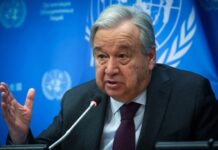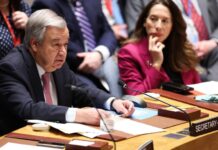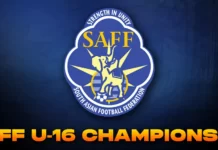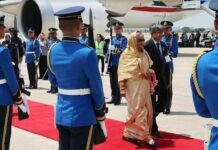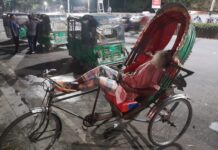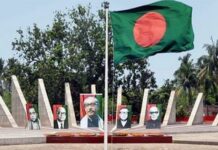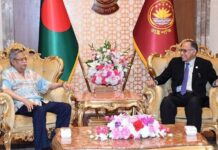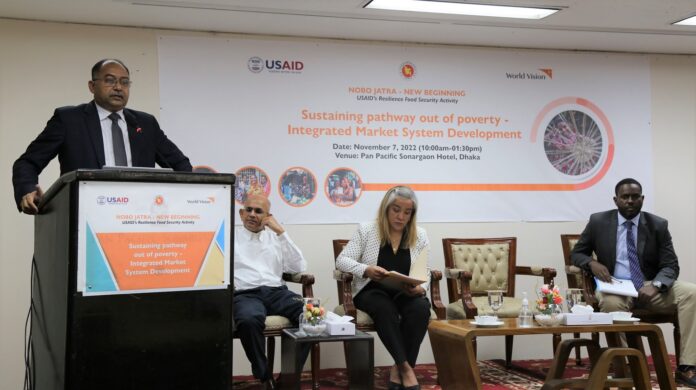
MoDMR, World Vision Bangladesh hold lessons-learned workshop on USAID’s Nobo Jatra Project
Dhaka, Monday, 7 November 2022:
Nobo Jatra Project is aligning with Bangladesh’s 8th five-year plan and helpful to achieving the SDGs, said Md. Kamrul Hasan, ndc, Secretary, Ministry of Disaster Management and Relief (MoDMR). “Let’s work together. We’ll continue to collaborating with international and local NGOs in reducing poverty and climate related risks in the upcoming years,” he said.
MoDMR Secretary made these remarks at a lessons-learned workshop on USAID funded ‘Nobo Jatra – New Beginning Project’ at the Pan Pacific Sonargaon Hotel in Dhaka on Monday (7 November 2022). The workshop was arranged jointly by the Ministry of Disaster Management and Relief (MoDMR) and World Vision Bangladesh.
Md. Kamrul Hasan, ndc, Secretary, MoDMR, Government of the People’s Republic of Bangladesh, attended the workshop as the Chief Guest.
The event was attended by special guests– Ms. Ellen de Guzman, BHA Country Lead, and Director, Humanitarian Assistance Office, USAID Bangladesh; Dr. Imam Abu Sayeed, Director, Policy Support Wing Bank of Bangladesh; Syed Abdul Momen, Deputy Managing Director & Head of SME at BRAC Bank Limited and Mr. Suresh Bartlett, National Director, World Vision Bangladesh.
The workshop highlighted Nobo Jatra’s experience and learnings from implementing an integrated layered Ultra Poor Graduation (UPG) program featuring an inclusive Market Systems Development (iMSD); Disaster Risk Reduction (DRR); and Water, Sanitation and Hygiene (WASH) interventions to enhance individual and community level resilience capacities and prevent re-entry of participants into poverty. For example, the research reported that participants who received UPG (Ultra-Poor Graduation) +WASH+DRR interventions reported owning a statistically significant higher amount of assets than participants who received the UPG program alone. They are less likely (by 20 percentage points) to live in extreme poverty, 19% lower probability of income loss, compared to participants who received the UPG program alone.
World Vision Bangladesh in partnership with the Ministry of Disaster Management and Relief (MoDMR) have been ensuring economic security for the less fortunate through integrated market system development with social safety net programs in Khulna and Satkhira districts through USAID’s ‘Nobo Jatra – new beginning’ project.
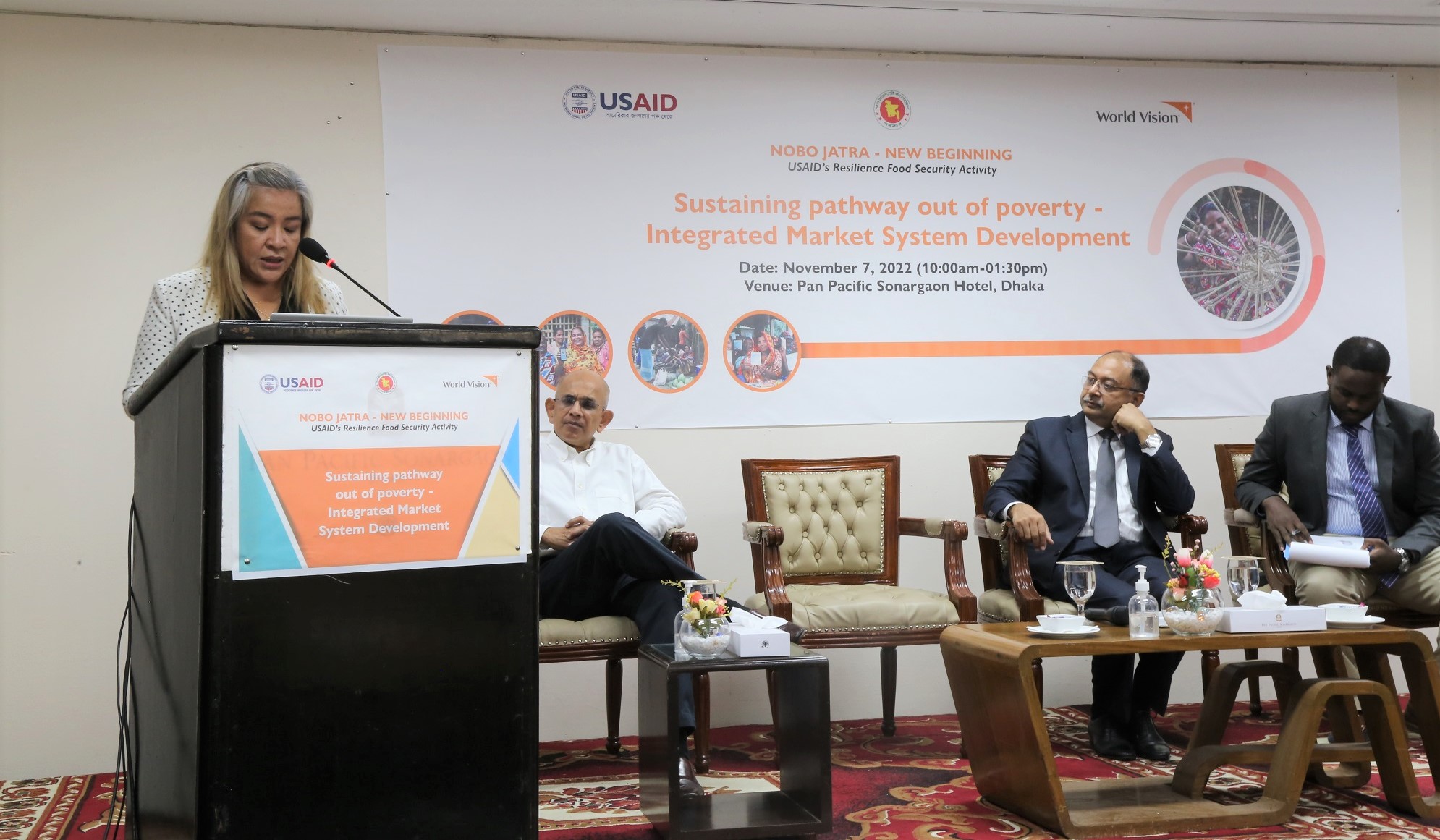
The Chief Guest of the event Md. Kamrul Hasan, ndc, Secretary, Ministry of Disaster Management and Relief (MoDMR), Government of the People’s Republic of Bangladesh, said “I appreciate USAID for being a longstanding development partner of Bangladesh. They have been always beside Bangladesh.”
He also said that the coastal people have been suffering from different problems, but today’s event of NJP project will be a milestone of helping the coastal people.
“Nobo Jatra Project is very much aligning with Bangladesh’s 8th five-year plan and helpful to achieving the SDGs, said Md Kamrul Hasan, adding that “Let’s work together. We’ll continue to collaborating with international and local NGOs in reducing poverty and climate related risks in the upcoming years.”
Speaking as a special guest during the event, Ms. Ellen de Guzman, BHA Country Lead, and Director, Humanitarian Assistance Office, USAID Bangladesh, said “The USAID has dedicated substantial resources to realize sustainable, gender inclusive and equitable food security and improve economic livelihoods for vulnerable communities in Bangladesh.
“It is important to integrate vulnerable populations and participants effectively into market system and connect them with private sector actors this will increase sustainability and scale up impacts,” she added.
“We hope the discussion today’s event will be fruitful, and result in concrete solutions and provide critical path forwards to align multi-sectoral and layered programing with government and non-government interventions for extremely poor communities. I believe in the phase of ultra-poor graduation programing where saving and loans, association approaches can be an integral pathway for poverty reduction,” she added.
Mr. Suresh Bartlett, National Director, World Vision Bangladesh, noted that, “Some women of Village Savings and Loan Association (VSLA) and UPG groups never left home and most of them were child brides. Today they have come out. They are creating an asset for their families. They are coming to ensure their children are not drop out from school or their children are not married early. This is the transformation. That is what we want to see. World Vision is looking into that.”
“Collaboration is an important approach that Nobo Jatra Project has promoted. We look forward to continuing that collaboration with different stakeholders for the transformation of vulnerable communities,” he added.
Vidya Diwakar, Phd, Deputy Director, Chronic Poverty Advisory Network and Mehzabin Rupa, Manager-Knowledge management, Communications and Advocacy, NJP, presented research findings in the workshop.
Soon after the session of research findings sharing, Alex Bekunda, Chief of Party, NJP, World Vision moderated a panel discussion attended by Imam Abu Sayed, Director, Policy Support Wing, Chief Economist’s Wing at Bangladesh Bank; Syed Abdul Momen, Deputy-Managing Director and Head of SME banking, BRAC Bank; Dr Rohini Kamal, Research Fellow, BRAC Institute of Governance and Development (BIGD), Brac University; Wes Wasson, CEO, DreamStart Labs; and Marc Nosbach, Chief of Party, USAID SOUHARDO III program, CARE.
Senior level participants from the Ministry of Disaster Management and Relief (MoDMR), Ministry of Finance, Department of Cooperatives, Local Government Division, Bangladesh Bank and USAID Bangladesh, the donor community, academia and media personnel also attended the event.
The workshop intended to explore opportunities for scalability of the Ultra-Poor Graduation (UPG) program model through greater collaboration aligning with the safety net programme of the National Social Security Strategy of Bangladesh and other non-government interventions.


